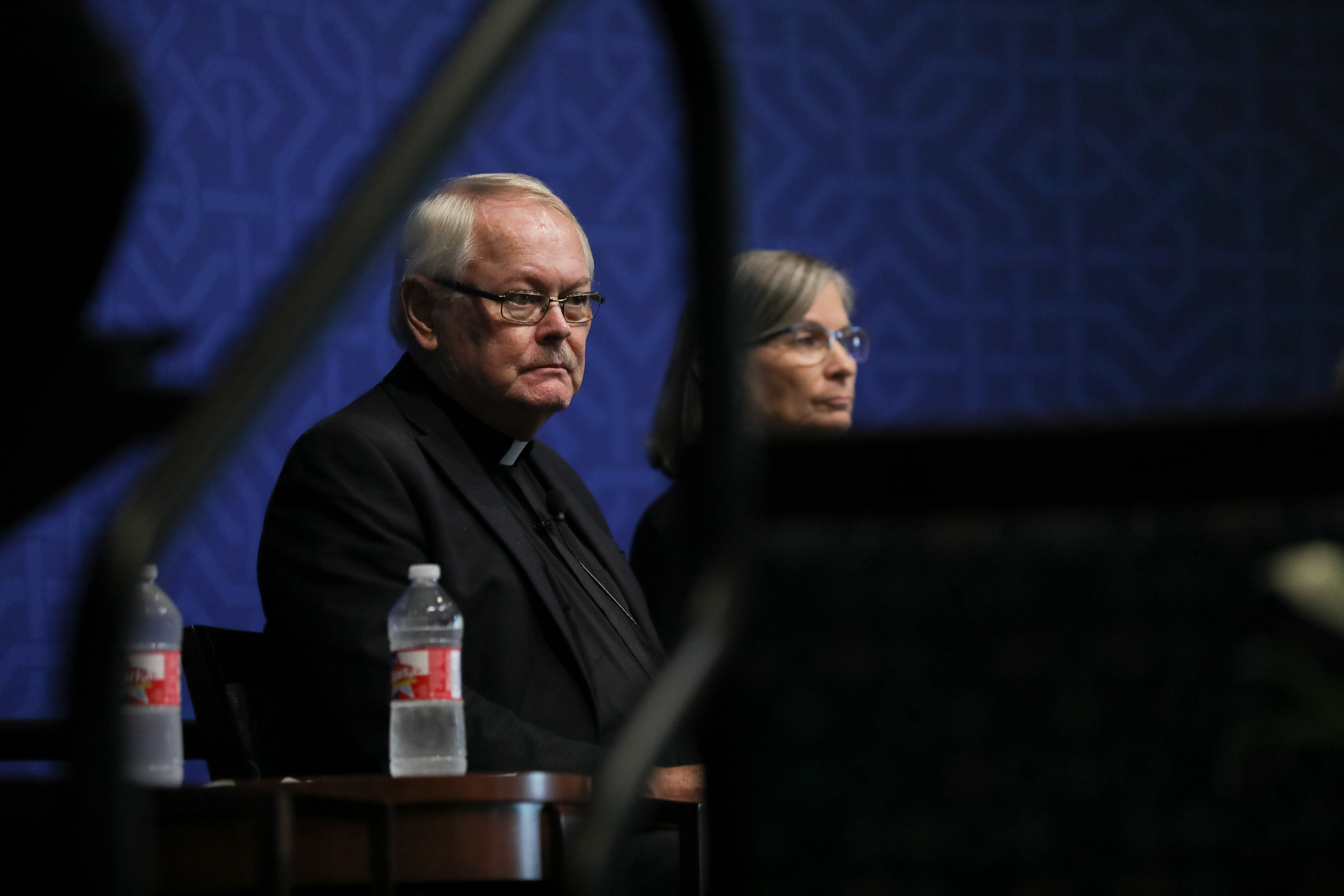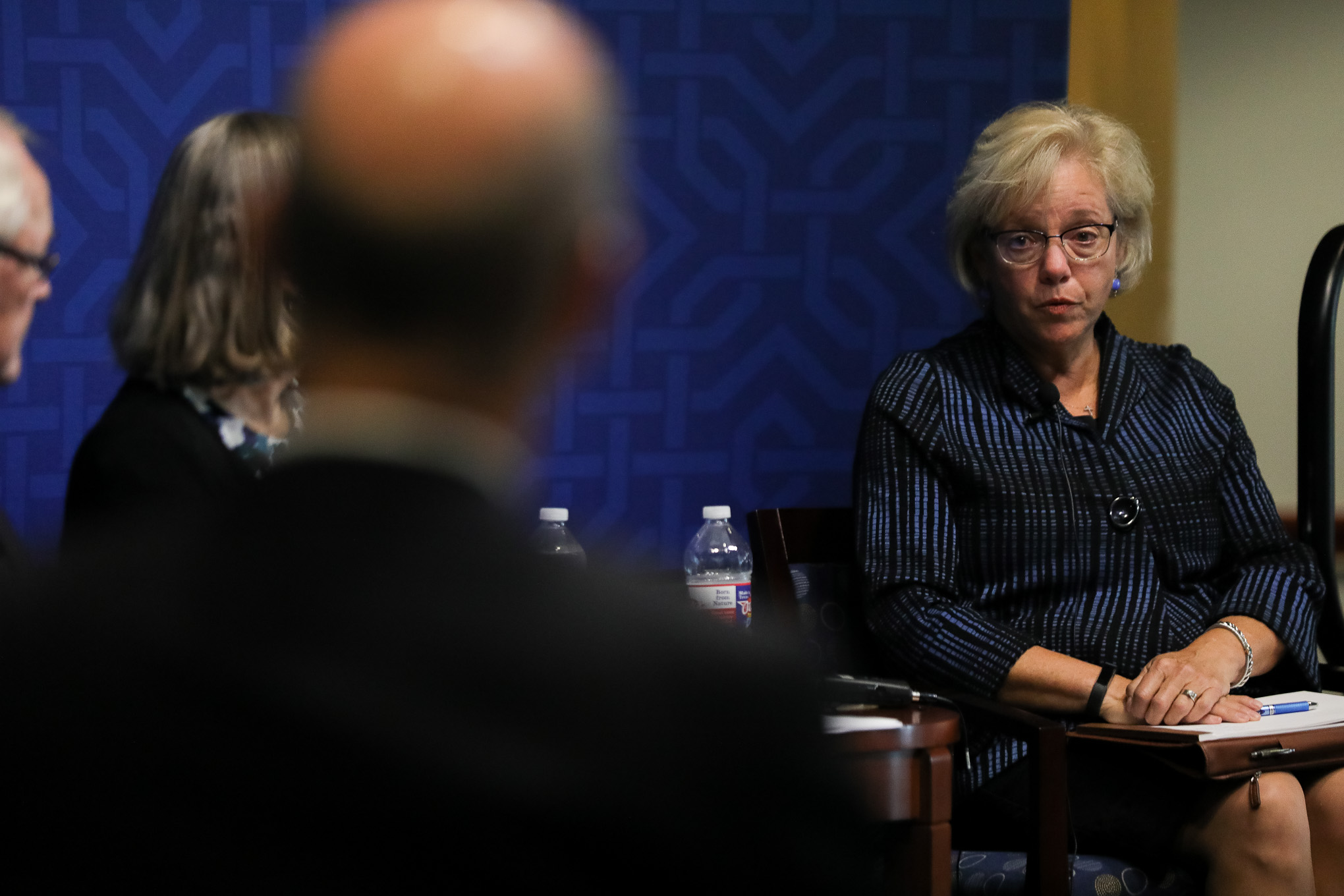St. Mary’s University Panel Discusses Way Forward after Clergy Sex Abuse Scandal
By Tim Hernandez
He pointed to the necessary change in the church that would make this possible. “We need to change canon law,” he said. “Right now, the way it’s written you have to be ordained to have decisional power, which excludes all women.” Deacon Bernard Nojadera, director of the U.S. Bishops Secretariat of Child and Youth Protection, said that as the church moves forward with policy changes, ensuring safe environments, and providing background checks before placing priests or other personnel in parishes, it must also look at changing church culture. As church leaders discuss budgets, personnel, and other routine matters, said Nojadera, “Let’s put the child at the center of the conversation. That has to always be the motivation of what we do and why we do in terms of carrying out and promoting safe environment.” In 2018, the Archdiocese of San Antonio formed an independent commission, chaired by retired Chief Justice of the Texas Fourth District Court of Appeals Catherine Stone, that reviewed approximately 140 claims of sexual abuse involving 130 victims and 50 clerics.The commission, made up of lay people, released a report in January examining abuse reports made against local priests and recommending policy changes. “I would have to say that in terms of changing norms and attitudes going forward, I would remind you that people are very protective of their priest,” said Stone. “It’s not just how priest and bishops look at what the appropriate treatment or response is, it’s also from us as human beings. We do need to put the child, the victim, at the center of that conversation.”
The commission recommended that one of the things that needed to change going forward was the ability of church organizations to communicate across all levels and across all different entities. Stone laid out that the religious orders should communicate with the Archdiocese to ensure that the Archdiocese would not be receiving a priest from an order to work in the diocese and not have background information about him. Likewise, the Archdiocese should not return that clergy member to his order without informing the order about any problems that had arisen. Patti Waller Koo, a local member the Survivors Network for those Abused by Priests (SNAP), pointed to progress made by the Archdiocese in facilitating reports of abuse. “I think one the chief concerns that we [SNAP] have is the reporting process, and that was definitely addressed,” she said. The Archdiocese announced the implementation of a third-party system to report abuse on May 30. The third-party website, EthicsPoint, is operated by Navex Global. Reports are kept confidential and distributed via a secure portal to Archdiocese officials responsible for investigating abuse. However, Waller said there were still concerns about the potential for cover-ups. “That information still goes to the Archdiocese’s [Office of Victim Assistance and Safe Environment],” she said. “It needs to go to the police department first.”
|
.
Any original material on these pages is copyright © BishopAccountability.org 2004. Reproduce freely with attribution.

